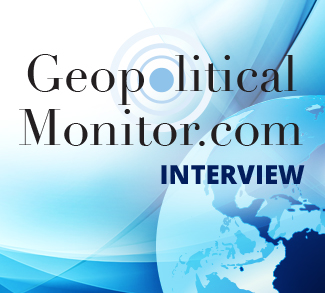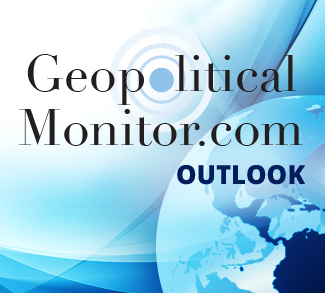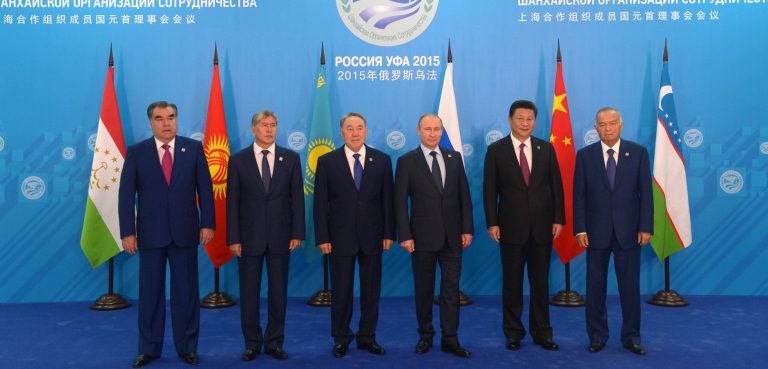Geopoliticalmonitor.com sits down with Mark Leonard to discuss the repercussions of the Brexit. Mr. Leonard is the Director of the European Council of Foreign Relations.
What is a consequence of Brexit that might take UK Leave voters by surprise?
Leave voters will be surprised by rising levels of immigration, at least until Britain has actually left the EU, and new immigration rules may be in place. Many will take the opportunity to come to Britain before the rules change.
More importantly, it is already becoming clear that a large part of Leave voters – probably about half – will be disappointed with the result of the negotiations no matter what is being agreed on. Leave voters voted for the black box of ‘Out’ without knowing what out meant. Every voter hence imagined his or her own ideal of Brexit, which cannot possibly come true.
What might take Remain voters by surprise?
Remainers will be surprised that Britain may in fact leave the single market. Most Remain voters thought that no matter the rest of the negotiations, Britain would at least remain part of the single market. However, after the campaign many officials and politicians think it will be politically impossible to stay in the single market for three reasons. Firstly, because it would involve free movement. Secondly, because it would involve making a contribution to the EU budget. Thirdly, because of the supremacy of EU law. If this happens, it will be surprising to many Remainers that the Conservatives are willing to be so business unfriendly.
Care to venture an educated guess as to when Theresa May will trigger Article 50?
Two scenarios appear possible. In the first scenario, Theresa May will invoke Article 50 in May as she won’t want to have the prospects of European elections looming over her head – which take place in May 2019.
The second scenario – which I consider slightly more likely – would be to hold general elections in spring, consolidate her majority, and trigger Article 50 after the German elections in November.
What kind of negotiating stance will Brussels adopt once Article 50 is triggered and formal talks begin?
Brussels will delay all formal talks and taking strong stances on anything until the German government is in place. Even then, it may want to not engage very much, waiting for the French to cast their votes in May 2017.
What Brussels offers will mainly depend on what May will ask for. It is important to note that Brussels, although officially the negotiation partner, is after all only moderating the ideas of 27 nations. Interestingly, the biggest headache for Brussels won’t be those advocating a harsh Brexit, but rather the pro-Europeans that are likely to suggest complicated special forms of cooperation with the UK in order to keep Britain as close as possible. But for Brussels, there needs to be a palpable difference between being in the club and being outside. The deal can’t be too good.
Do you think that the Brexit vote is indicative of a trend of growing anti-EU sentiment around the continent? If so, how does this trend measure up to historical precedent?
Yes. The EU is well into an era of disintegration. The fragility and disunity of the remaining 27 states is in fact more troubling than Britain’s departure. In many countries the domestic consensus for Europe has all but evaporated. All member states are subject to the same feelings of economic insecurity, cultural anxiety, and political alienation.
And all over Europe, new political forces are exploiting these feelings by using referenda to recast politics as a fight between the people and self-serving elites. Across Europe, there are 47 insurgent parties that have already gained control of the political agenda of their countries. According to our research, 32 referenda are being demanded in 18 countries across the EU. We are experiencing a counterrevolution against the revolution that the establishment of the European Union was.
The EU has driven a revolution in how countries live together – advancing individual rights, international law, and the pooling of sovereignty. It had transformative power over the whole continent, exported European values, and shaped international institutions which adopted its model of shared sovereignty.
How will Brexit impact security policy in the European Union? Is it a net positive or negative for NATO’s relevance?
Britain will remain a security power in Europe despite Brexit. It is likely to stay engaged in the continent’s security. But increasingly, actions will be negotiated and taken through other, more flexible fora such as the G7, or EU 3+3. NATO is unlikely to become more than the toolbox that it is at the moment, because it is difficult to use it as a forum for negotiations. This means that smaller EU member states and EU institutions will lose in the realm of security policy.
The Brexit is often painted in negative terms for both Britain and the Union. Yet are there any positives, any new opportunities for Brussels following Britain’s decision?
People are right to assume that the Brexit is in fact bad for both Britain and the EU. Still there may be a few, small tactical changes that could be positive, such as the lifting of the British vetoes on the Operational Headquarters, increased spending on the European Defence Agency, or Elmar Brok’s participation in the informal meeting of EU foreign ministers (Gymnich).
The Brexit vote may also have nudged the remaining EU member states to begin reforming their immigration systems – harmonizing for instance issues such as the payment of benefits to European migrants.
In your opinion, what was the most decisive factor in swinging the vote to the Leave side?
The most important issue from the beginning was clearly immigration. That the Remain side was unable to provide a positive vision of Europe did not help either.
What would be your advice to officials in Brussels who want to close the rift opened by Brexit? Is ‘more Europe’ the answer, or ‘less Europe’?
The answer is not more or less Europe, but a flexible solution which protects citizens from interdependence. The EU will have to change – over the last few decades, it proved that it could be a force for globalization, tearing down barriers between peoples and nations. But today its survival depends on showing that it can protect citizens from these very forces. That will mean improving protection of the EU’s external borders, compensating domestic losers from migration and free trade, and soothing public fears about terrorism.
The EU has to work out what really matters to it, in which areas unity is crucial, and where it can agree to compromises and be flexible.
How will Brexit impact the GBP in the medium to long term?
After the initial shock, the pound appears stable although at a lower level. We may expect a similar drop immediately after or in the run up to the leaving date. However, Brexit is unlikely to have a long-term impact on the currency, unless the British economy suffers substantially and continuously.
Will global banks and financial firms in the City of London relocate on a mass scale?
Several cities have portrayed themselves as alternative to London, from Amsterdam to Paris, Frankfurt to Dublin. However, a relocalisation of the City on a mass scale appears unlikely, given the many advantages London continues to hold, from the English language, low taxes, established infrastructures and the relative availability of money. The city will fight hard to retain passporting rights, if it fails to do so, we can expect some relocalisation, but even in this case many financial firms will continue to operate from London.
Will Brexit trigger another referendum on Scottish independence?
Scottish independence, or another referendum, is not an automatic result of the Brexit vote. Over 1 million Scots voted to leave, more than the number who voted for Nicola Sturgeon. And although immediately after the referendum many called for another independence vote, the situation has cooled since then with polls suggesting that not significantly more people would vote for Scottish independence than did in 2014.
As Scotland, even more than the rest of the country, is suffering from acute referendum fatigue, calling for another independence referendum is by no means the automatic consequence of the EU referendum result.
The opinions, beliefs, and viewpoints expressed by the authors are theirs alone and don’t reflect any official position of Geopoliticalmonitor.com.




